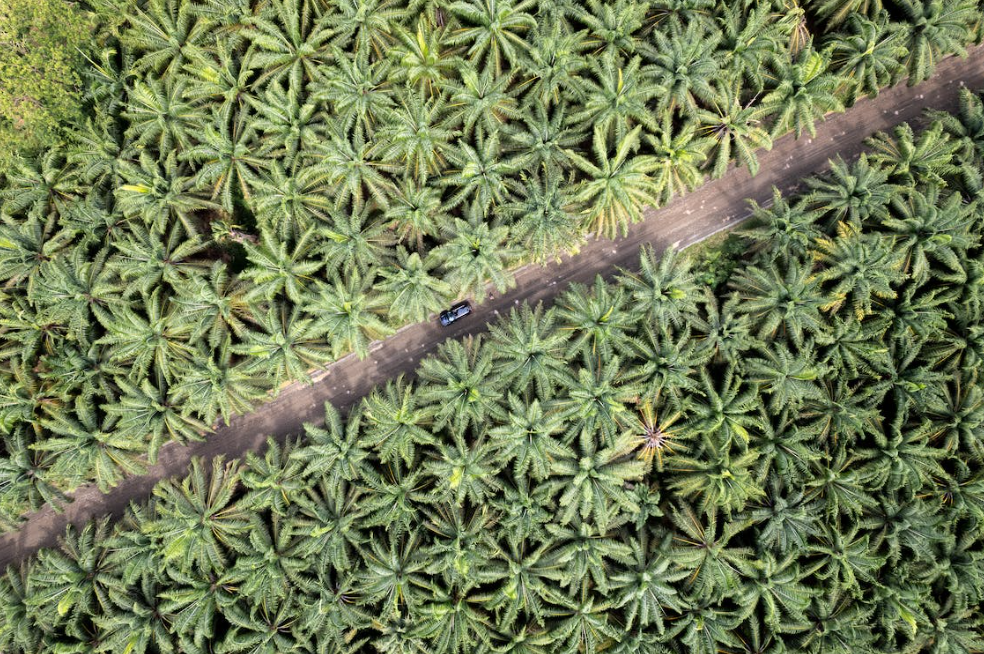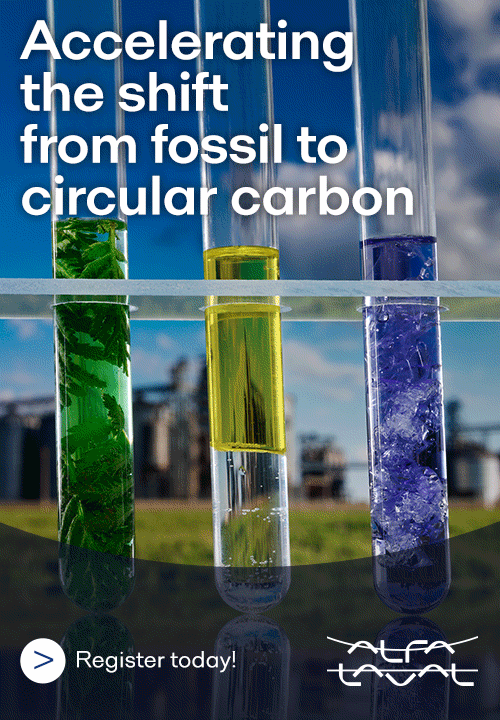Costa Rica’s bioeconomy strategy folds businesses into robust climate and biodiversity policies
Costa Rica established its first ever National Bioeconomy strategy in 2020. At the heart of the programme lies the country’s immense biological riches. Home to 6% of the world’s wildlife despite occupying just 0.03% of its surface area, Costa Rica is one of 17 so-called ‘mega-diverse’ countries – rare winners of the ecological lottery that include places like Brazil and Kenya.
Two years after Costa Rica launched its bioeconomy strategy, the two global superpowers established their own. In 2022, China announced its first ever five-year plan that focuses on biotech and bio-based production. In the same year, Joe Biden’s National Biotechnology and Biomanufacturing Initiative became the US’ biggest ever targeted state investment into the sector.
Like these other frameworks, Costa Rica’s bioeconomy strategy is a bid to decarbonise the economy by replacing fossil resources with renewable, biological ones. By guiding investment to private projects that align with public sustainability goals, it aims for a competitive bio-based sector driven both by scientific innovation as well as traditional products like biofuels.
Yet Costa Rica’s strategy also stands apart. While it aims to capture value from nature, the government is also intent on protecting it. Under this vision, businesses are meant to serve biodiversity, not the other way round.
We look at how Costa Rica’s National Bioeconomy strategy is unique among similar frameworks for its emphasis on conserving natural spaces even as it seeks to replace fossil resources with biological ones.
Costa Rica’s Bio-Business Financing Platform
The Bio-Business Financing Platform is the section of Costa Rica’s National Bioeconomy Strategy focused on stimulating green businesses. The platform has identified 88 projects around the country that might be eligible for support. 44.9% are led by women and have varied needs for access to financing, training, alliances and mentoring. 41% fall under the advanced bioeconomy segment while 40% are biorefineries that valorise waste from agriculture, forestry, and fishing.
Depending on the type of project, the bio-business financing platform dispenses green credit, seed, and risk capital via one of five financial mechanisms: the Bioenterprise acceleration program, BioInnova Program, BioAcelera, Crédito Mujeres Natura Fundecooperación, and the Rural Woman Credit.
Programmes that stimulate private enterprise are a central feature of other national bioeconomy strategies around the world. However, Costa Rica’s approach distinguishes itself by integrating its support for the bio-based private sector with wider conservation and sustainable development policies.
To obtain credit and other forms of support, it is not enough for candidate businesses to manufacture products from renewable bioresources. The programme’s definition of sustainability ranges much wider. Businesses must also be reducing or mitigating human impacts on ecosystems.
Two agricultural startups vying for financing under the platform are Coopetarrazu and Nicoverde. Pineapple producer Nicoverde, a subsidiary of Italian corporation Nico Frutta and headquartered in Costa Rica, has already implemented diverse circular practices. Their in-house laboratory has created fungus and bacteria that can be used as natural soil amendments. The company also grows edible mushrooms for the consumer food and health markets using its own agricultural waste. It also sells biological waste to be turned into animal feed. Another circular output from Nicoverde farms are bio-based, biodegradable materials that could replace single-use plastics in the pineapple sector.
Coopetarrazu is a coffee farmer-run cooperative in Costa Rica founded in 1960. It owns coffee bean processing plants, supermarkets, gas stations, and agricultural feed and supply stores. As part of its circular initiatives, it processes 31, 000 tonnes of its own waste coffee pulp per year, around a third of which it gives away to farmers for free. They also sell compost at supply stores. They are now building a biodigester that turns waste from their coffee processing into biogas and electricity to power their own business operations. Since 2018, the company has also earned three biodiversity certifications that ensure sustainable and equitable farming practices among its coffee grower members.
The social dimension
Social equity is an integral part of the Costa Rican bioeconomy strategy and this is reflected in the structure of the Bio-Business Financing Platform.
In Costa Rica, as in other countries, female entrepreneurs are less likely to get business financing than men are. Two of the business support mechanisms of the Bio-Business Finance platform – Women Nature and Rural Women Credit- attempt to close the gender gap in green entrepreneurship.
One beneficiary of Women Nature has been an organic bio-based cosmetic company founded over the pandemic by Elizabeth Ramirez Gonzalez and Andrea Rojas Cruz, two friends who met on a course and decided to start a sustainable beauty business.
The two had been turned down for loans by each bank they had previously tried while the Women Natura programme dispensed credit within one month of application. The programme funds allowed Elizbeth and Andrea to make the first purchases for the business: packaging and marketing materials. This led to them eventually getting their products sold across nine stores in Costa Rica.
Costa Rica’s diverse green finance ecosystem
Another strength of the Costa Rican bioeconomy plan is that it slots into wider economic development strategies and environmental goals, both national and international.
The Costa Rican bio-business financial platform for example doesn’t just sit under the national bioeconomy strategy – it is also hooked up to the international biodiversity policy landscape as one of seven ‘finance solutions’ organised by BioFin. This is a global project by the UN Development programme that helps countries find the financing required to fund their national biodiversity targets and has been a key pillar in supporting Costa Rica implement its bioeconomy strategy.
Alongside the Bio-Business Platform, another arm of BioFin dispenses bonds tied to future income from National Protected Area Systems. Their yields will fund infrastructure in those areas. BioFin Costa Rica has also established a system of payments that funnels money towards entities that preserve ecosystem services. The proceeds from this will one day replace state revenues that come from fossil fuels, an example of how Costa Rica is one of few countries to integrate its bioeconomy plan with net zero goals. There is seed capital for sustainable tourism too, another way of leveraging its ecological blessings to generate revenue.
A world leader in sustainable economy
Costa Rica’s national bioeconomy strategy strives for a near-impossible balance. On the one hand, it aims to develop an advanced bioeconomy that brings income to communities and the state. On the other, it also wants biodiversity protection, recognising that healthy ecosystems provide resources for the bioeconomy as well as for basic human survival.
Part of why Costa Rica’s strategy may succeed is that its double programme of development and conservation builds on a mature domestic institution for tackling these issues. This is the product of a thirty-year long commitment at the highest levels of the Costa Rican government to sustainable development. It emerged between 1986 and 1990, when a far-sighted government minister named Alvaro Umaña effectively halted deforestation in the country by giving incentives for cattle ranchers to restore rather than destroy wild nature.
Thirty years on from Umaña’s reforms, Costa Rica is also one of only seven countries globally whose progress on climate goals is ranked ‘almost sufficient’ by Climate Tracker – high praise given that Climate Tracker has not yet deemed any country to have made ‘sufficient’ policy progress on keeping average global temperatures below 2 degrees by the end of this century. It is also a world leader in biodiversity protection, having restored almost 60% of its rainforests after they had dipped to a quarter of their full extent in the late eighties.
Costa Rica’s environmental policies have also been so successful because their impetus came from within rather than being imposed by external agencies. The position of developing countries in the global economy means they are often subject to outside interventions and pressures that can undermine domestic ecosystems. In Costa Rica, where initial moves towards sustainable development came from domestic actors, policies are better adapted to its cultural and economic specificities and have attracted more widespread support as a result.
The seriousness with which Costa Rica has approached biodiversity and carbon reduction for the last thirty years has been replicated in its bioeconomy strategy. More than in most countries, it makes good on the idea that protecting nature and people independently of their status as just economic resources is the only viable foundation for a sustainable bioeconomy.
Costa Rica’s bioeconomy after Covid
However, it is clear that Costa Rica cannot go it alone. Like any other nation, it relies on external investment and global financial flows – two things severely tested by the pandemic. The impacts of Covid-19 has unravelled the country’s bioeconomy strategy by pressuring its dominant tourism industry and forcing the government to divert its decarbonisation budget towards the public health response. Costa Rica now needs more financing to recover the optimism that surrounded the launch of its bioeconomy plan three years ago.
Costa Rica’s embrace of bio-based startups may already have attracted enough international attention to steer a course back to green recovery. In 2022, for example, the venture capital fund Deep Science Ventures selected the country as to be a base for its Tropical Agriculture and Bioeconomy Initiative, a programme that accelerates startups specialising in bio-agtech for tropical agriculture.
Costa Rica’s climate and diverse farming sector, says Deep Science Ventures, offers an optimal testing ground for new tropical farming inputs. It also foresees Costa Rica as becoming a ‘world-renowned engine of entrepreneurship in sustainable agriculture and bioeconomy’. Certainly, the country has the political will in place to attract more of this kind of financing.








